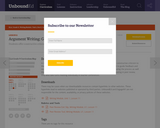
In this lesson, students will offer constructive criticism to their classmates about their argument rough drafts.
- Subject:
- English Language Arts
- Material Type:
- Lesson Plan
- Provider:
- UnboundEd Learning
- Author:
- UnboundEd
- Date Added:
- 04/23/2019

In this lesson, students will offer constructive criticism to their classmates about their argument rough drafts.
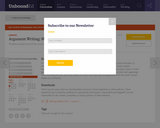
In this lesson, students will work in pairs in order to analyze the article "Social Media as Community" by Keith Hampton and evaluate the pros and cons.
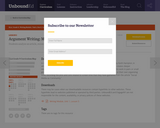
In this lesson, students will continue to pre-plan their argumentative essay, working on Pros and Cons Charts as they read and analyze the article "Social Media as Community" by Keith Hampton.
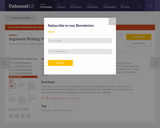
In this lesson, students will discuss the article, "Education 2.0: Never Memorize Again?" by Sarah Perez, focusing on pre-writing and organizing their writing according to task, purpose, and audience.
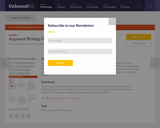
In this lesson, students will complete annotation and notes on the article "Education 2.0: Never Memorize Again?" By Sarah Perez. Students will review the task, purpose, and audience for their argument and participate in a prewriting activity.
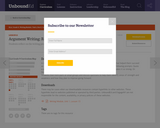
In this lesson, students will reflect on the writing process, competing a quick write on a prompt that helps them examine their strengths and weaknesses as a writer. Students will then share their experiences in small groups or pairs and talk about what makes good writing.
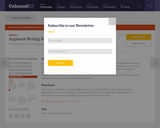
In this lesson, students will reflect on what was most effective in their writing, completing a quick write and then working in pairs to plan their approach going forward.
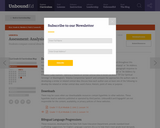
In this end of unit assessment, students will write a multi-paragraph response to comparing a central idea across two texts from the unit. Students will focus on how that idea is developed by word choice, rhetoric, point of view, or purpose.
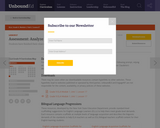
In this end of unit assessment, students will write a multi-paragraph response to show their understanding and analysis of St. Lucy's Home for Girls Raised by Wolves."
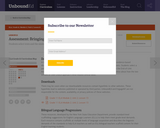
In this lesson, students will work in partners to help one another have an evidence-based discussion on how to write a paper comparing two texts with similar central ideas.
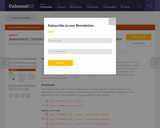
In this lesson, students will complete a two part assessment, first writing a response to how Wiesel develops two or more central ideas in his lecture, "Hope, Despair, and Memory," and then writing about how two to three areas of investigation emerged while they read the lecture.
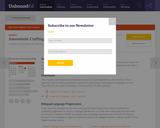
This resource for "Letter One" from Letters to a Young Poet focuses on how to craft a formal, multi-paragraph essay on how word choice impacts meaning and tone.
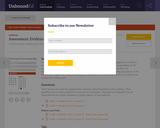
In this lesson on the conclusion of The Awakening ,students will engage in an evidence-based discussion, making claims and supporting them with textual evidence.
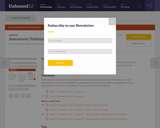
In this lesson, students will revise and polish and finalize their research-based argument papers.
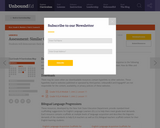
In this End of Unit Assessment, students will craft a formal essay exploring and identifying the development of similar ideas in Letters to a Young Poet and Black Swan Green.
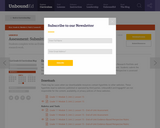
In this lesson, students will complete a final review of the Research Portfolio and writing an Evidence Based Perspective based on the research outcomes for the unit.
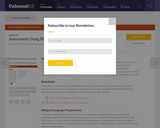
In this lesson, students will respond to a writing prompt that asks them to consider how two different authors use rhetoric to advance their point of view.
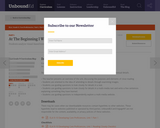
In this 3-4 day lesson of 5 activities, students will focus on analyzing visual based texts, focusing on details, guiding questions, and close reading.
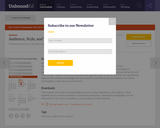
In this lesson, students will learn how to address an audience, focusing on formal style and objective tone.
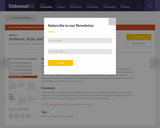
In this lesson, students will learn how to address an audience's knowledge level and how to use an objective and formal tone in their informative writing.